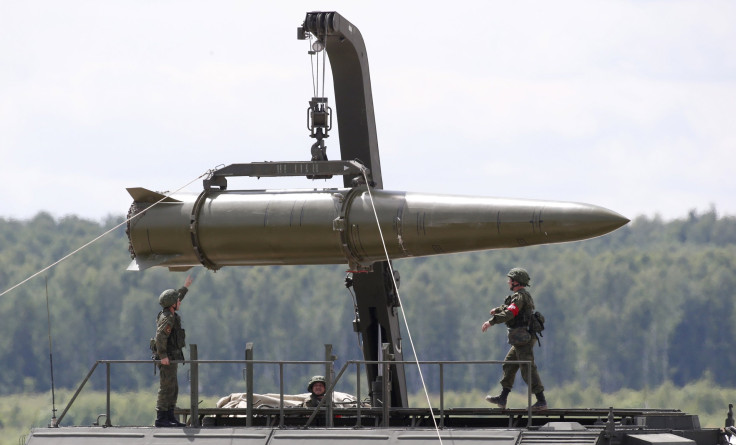Russia Warns NATO: Will Deploy New Generation Missiles In Northern Territories If Sweden Joins Alliance

Russia is finalizing the development of new generation missiles that are likely to be deployed in the country’s northern territories if Sweden joins NATO, the deputy chair of the Russian upper house’s Arms Committee said Friday. The statement comes after Russian Foreign Minister Sergei Lavrov said Thursday that Moscow would take “military-technical action” on its northern borders if Sweden joined the coalition.
“Currently the development is being finalized on a new modern generation of missiles that have not been announced. They will be impregnable to NATO weapons, including air defense systems,” Evgeny Serebrennikov told RIA Novosti news agency, the Russian-language counterpart of Sputnik news agency.
Serebrennikov also said that Moscow would boost its military capabilities on its northern and northwestern borders, including an increase of its Northern Fleet, if Sweden joins NATO.
“We’re talking not only about military-technical [capabilities], but their numbers as well. Russia will increase the number of its Armed Forces on the northern and northwestern borders, including in the Northern Fleet, if Sweden joins NATO,” Serebrennikov told RIA Novosti. “Both Sweden and NATO need to make a conclusion,” he added.
The development came after Lavrov warned Sweden of joining the coalition. Lavrov also blamed Sweden for a cooling off in relations between the two countries following Russia’s annexation of Crimea in 2014.
“It’s every country’s right to decide what form its security should take, but one must understand that if military infrastructure approaches Russia's borders, we would of course have to take the necessary military-technical action. There’s nothing personal in it; it’s just business,” Lavrov said in an interview with Dagens Nyheter, a Swedish newspaper.
However, Swedish opposition Moderate Party’s foreign policy spokeswoman Karin Enström said Friday the country should demand an explanation for Lavrov’s comments.
“This raises a lot of questions, which is why I think it’s important that the foreign minister summons the Russian ambassador to explain what Russia and the Russian foreign minister mean by this,” she told the TT newswire, according to TheLocal.se website.
© Copyright IBTimes 2024. All rights reserved.






















